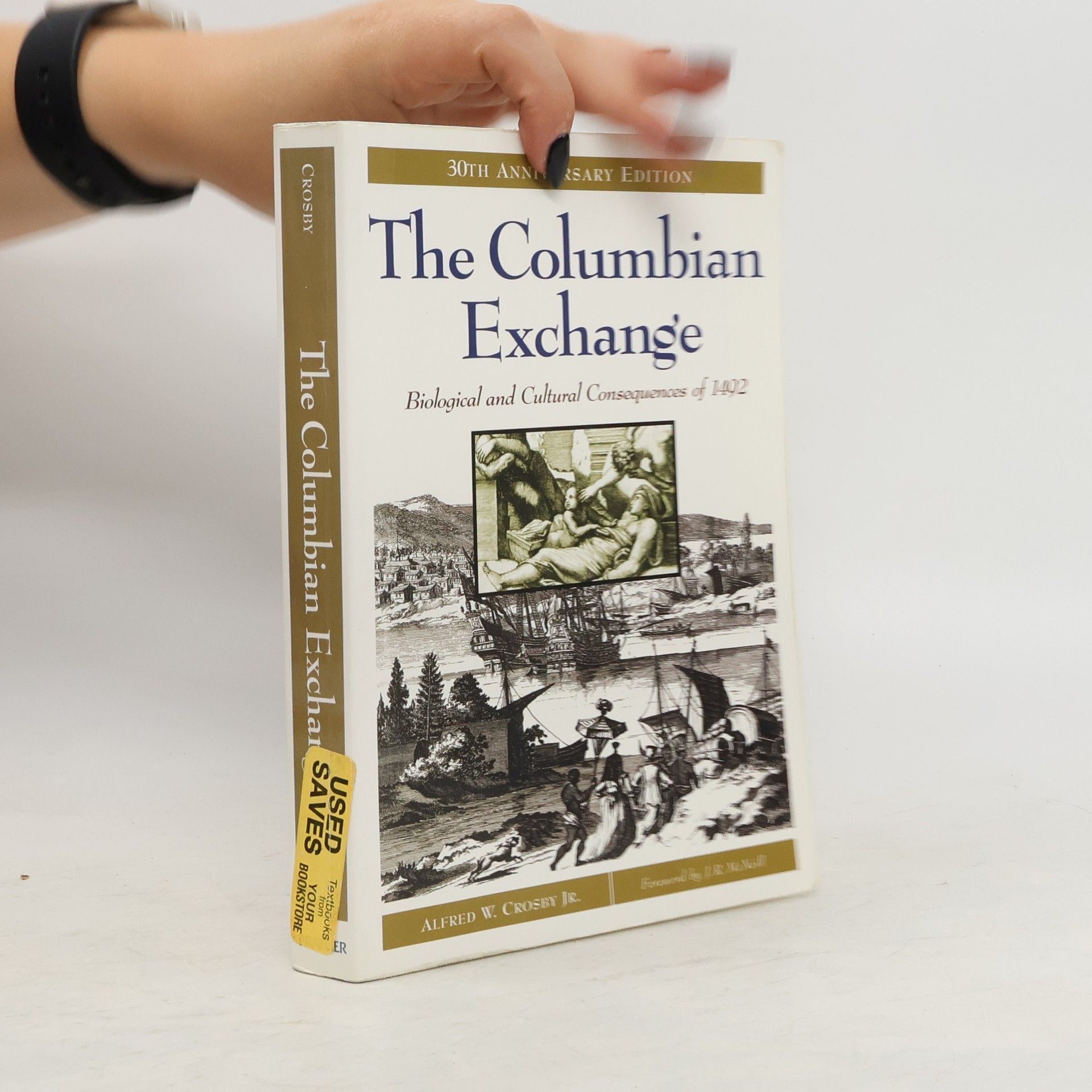Thirty years ago, Alfred Crosby published a small work that stressed a simple point - that the most important changes brought on by the voyages of Columbus were not social or political, but biological in nature. This 30th anniversary edition includes a new preface from the author.
Alfred W. Crosby Libri
15 gennaio 1931 – 14 marzo 2018
Alfred W. Crosby Jr. fu un ricercatore interdisciplinare che unì storia, geografia, biologia e medicina. Indagò le cause storiche della distribuzione ineguale della ricchezza globale, esplorando i fattori biologici che facilitarono l'espansione europea. Un tema centrale nel suo lavoro fu il profondo impatto delle epidemie sulla storia umana, riconoscendo la significativa influenza di eventi come la pandemia influenzale del 1918. Crosby è anche accreditato per aver coniato il termine 'Scambio Colombiano', un concetto che ha plasmato in modo fondamentale il discorso storico.


Ecological Imperialism
- 368pagine
- 13 ore di lettura
A fascinating study of the important role of biology in European expansion, from 900 to 1900.